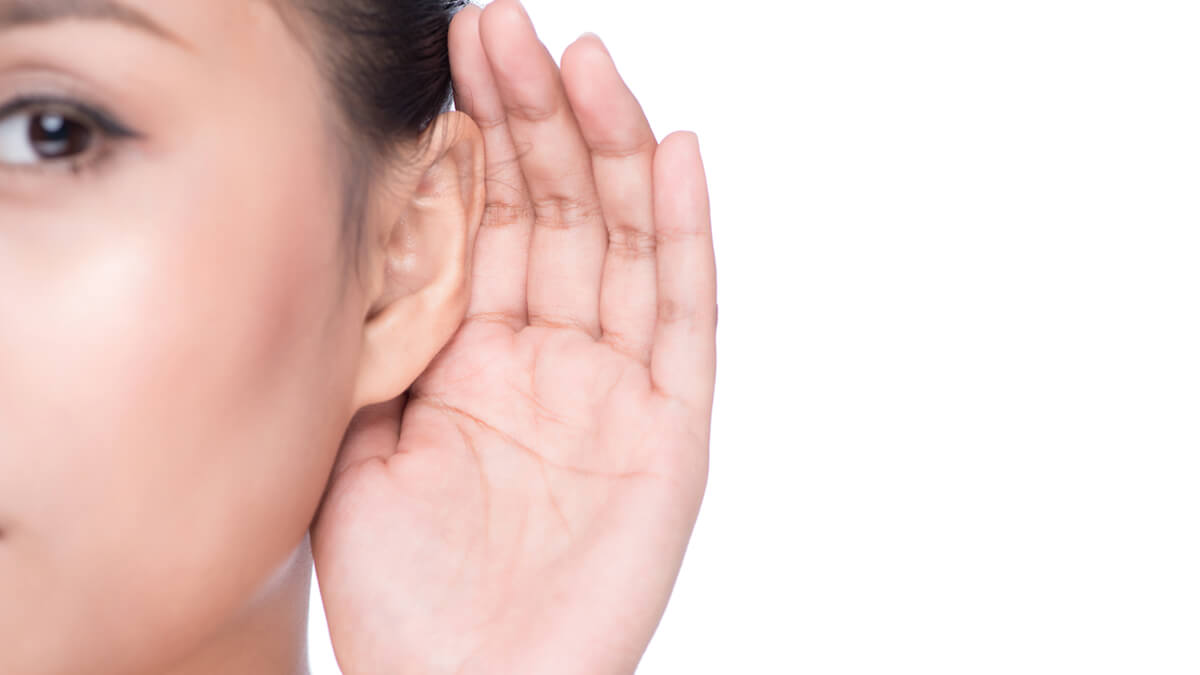Nearly a quarter of American adults may have hearing loss from exposure to loud noises.* For these people, reduced hearing is more than just an annoyance. It can inhibit their ability to understand communication and cost them thousands in doctor’s bills and hearing aids. That’s why noise-induced hearing loss is a serious public health concern. And why, if you’re thinking of beginning—or are already in—a public health career, you should know how to help people protect their hearing in our increasingly noisy world.
Why Do Loud Noises Cause Hearing Loss?
Believe it or not, noise-induced hearing loss is also hair loss. In the cochlea of our inner ear, sound waves are transmitted through hair cells that move up and down with the vibrations of sound. The louder the sound, the more the vibration. But if the hair cells vibrate too much (i.e., are exposed to too much sound), they can become damaged and even die. And once we lose that hair, it never grows back.*
What Noises Are Too Loud?
To avoid hearing loss, you want to limit your exposure to sounds greater than 85 decibels. Decibels measure sound exponentially, so if a sound increases by 10 decibels, it has gotten 10 times louder. That makes a 120-decibel siren about one trillion times louder than a zero-decibel pin drop. Here are the decibel levels of several common sounds:*
- Pin drop: 0 decibels
- Whisper: 30 decibels
- Refrigerator humming: 45 decibels
- Normal conversation: 60 decibels
- Dishwasher: 75 decibels
- City traffic: 85 decibels
- Motorcycle: 90 decibels
- Music player at maximum volume: 105 decibels
- Music concert: 110 decibels
- Emergency sirens: 120 decibels
- Jet engine: 140 decibels
- Gunshots: 150 decibels
How Do You Avoid Noise-Induced Hearing Loss?
Three factors go into whether a noise will damage your hearing: how loud it is, how close it is, and how long it lasts. As these factors increase, your risk of hearing loss increases, too.
So if you want to avoid hearing loss, you want to limit all three factors as much as possible. To do so, you can take several common-sense actions:
- Be aware of which noises are typically above 85 decibels.
- When exposed to loud noises (such as at a concert or a shooting range), wear ear protection.
- If you don’t have ear protection and/or can’t reduce the sound, move away from it.
- Use earphones rather than earbuds and keep the volume of your music player at a reasonable level.
How Can You Help Address the Public Health Concern of Noise-Induced Hearing Loss?
If you want to help educate people on the risks of loud noises—and help them live healthier lives in other ways, too—then you should consider earning a public health degree and entering one of the many jobs in public health or advancing your current public health career. If you’ve not yet earned a bachelor’s degree, you can enroll in a BS in Public Health or similar program. If you already hold a bachelor’s degree—even if you weren’t a public health major—you can enroll in a Master of Public Health (MPH) degree program. While salaries for Master of Public Health graduates tend to be higher than for those holding just a bachelor’s degree, both of these public health degree programs can give you the knowledge you need to address many of the most pressing public health issues.
Both of these degrees are also available through online university programs. This means you don’t have to move or take time off from your current job to earn your bachelor’s or master’s in public health. Instead, an online bachelor’s in public health or MPH program can allow you to complete the majority of your coursework from home on a flexible schedule designed to let you continue working full time. Such advantages of online learning make enrolling in an online public health program a great choice for working adults.
Noise-induced hearing loss is one of the many public health issues affecting millions. With an online bachelor’s in public health or a Master of Public Health degree, you can help make a real difference.
Walden University is an accredited institution offering online BS in Public Health and Master of Public Health degree programs. Expand your career options and earn your degree in a convenient, flexible format that fits your busy life.
*National Institute on Deafness and Other Communication Disorders, Noise-Induced Hearing Loss, National Institutes of Health, on the internet at www.nidcd.nih.gov/health/noise-induced-hearing-loss.
Walden University is accredited by The Higher Learning Commission, www.hlcommission.org.




